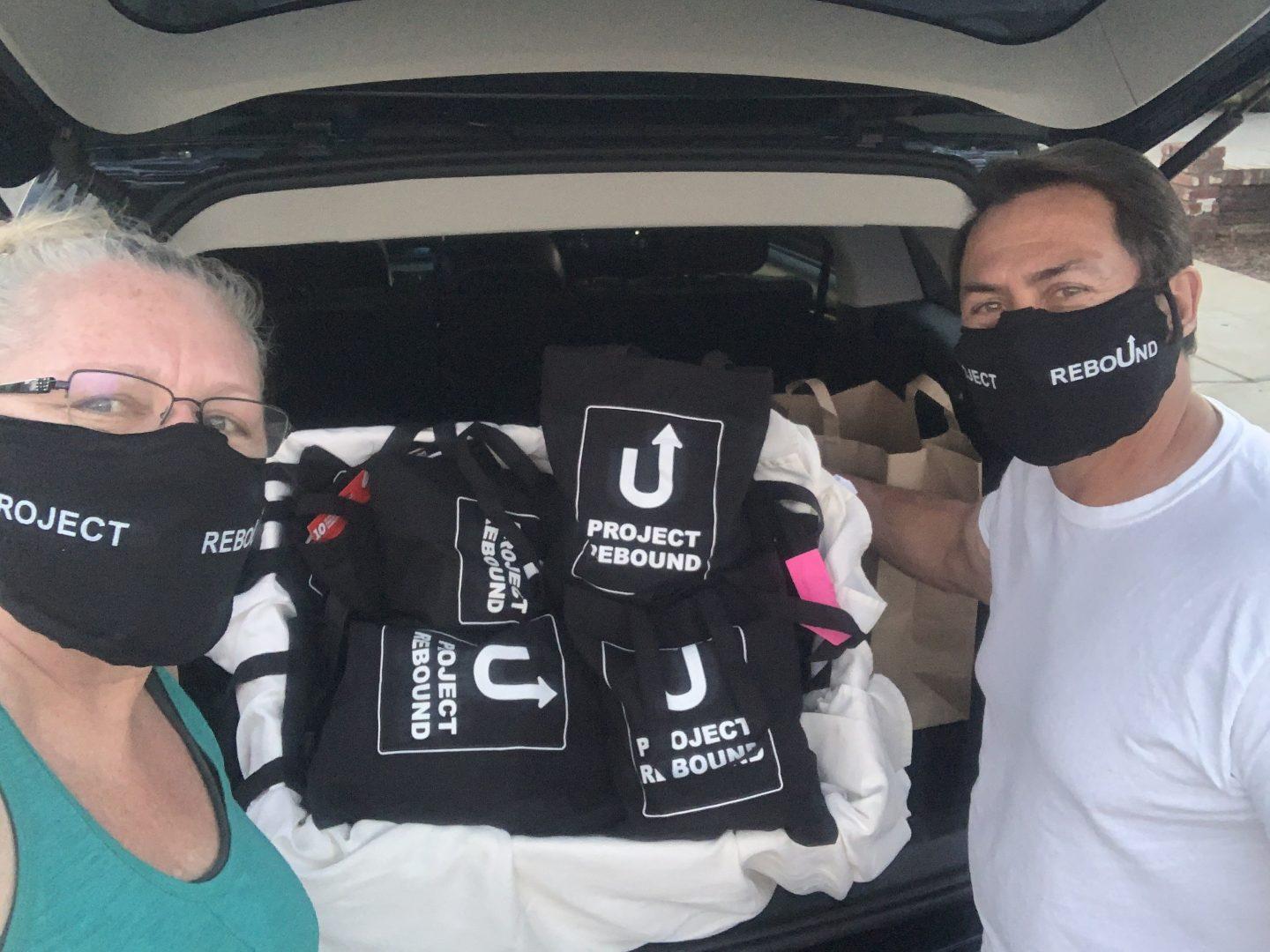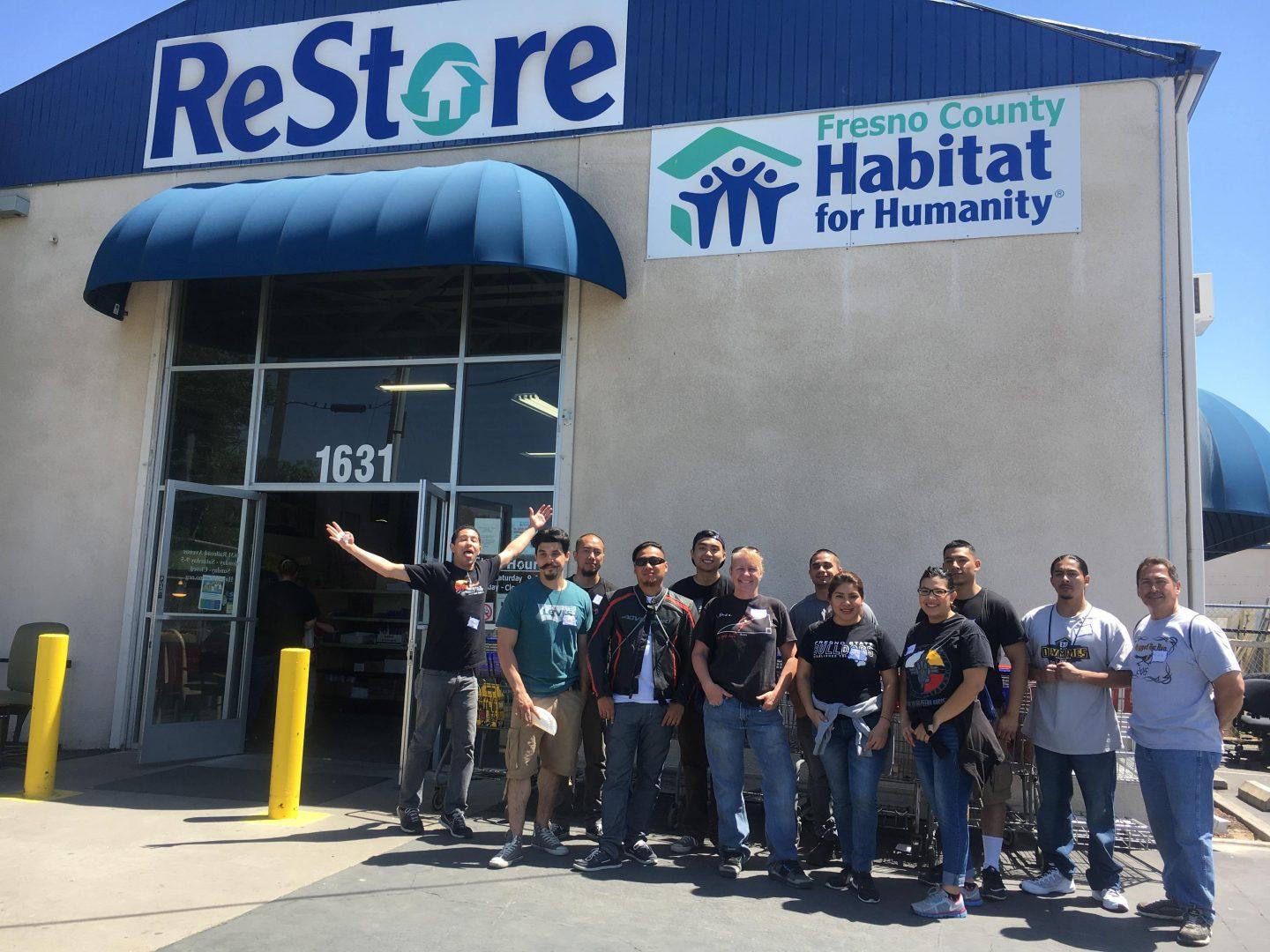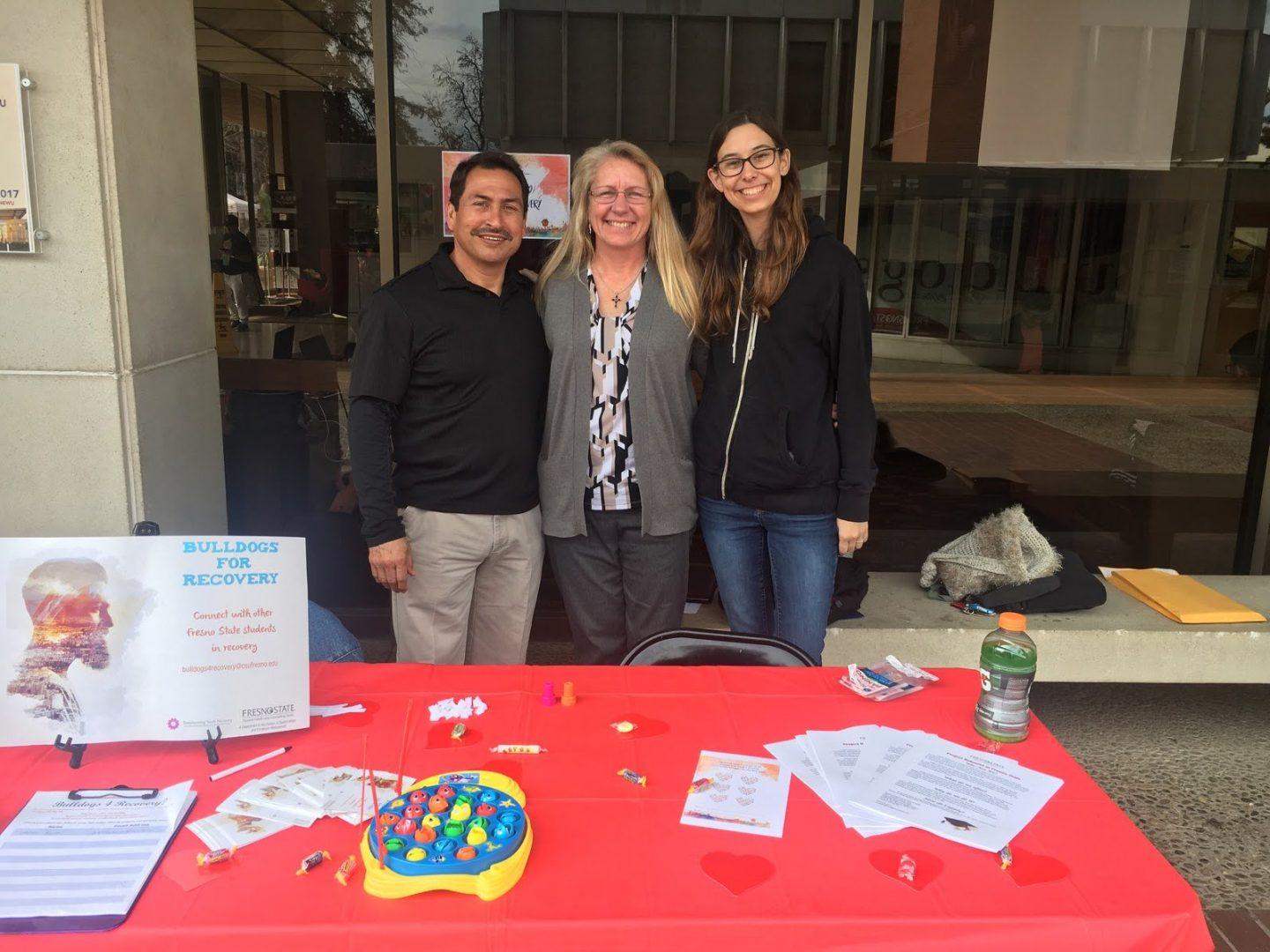Jennifer Leahy, director of Project Rebound at Fresno State, assists formerly incarcerated students with navigating higher education.
She understands the system at a personal level, because nearly 30 years ago, Leahy was arrested at 21.
Leahy was incarcerated for 17 years and returned home at 38 with a high school diploma and no plan.
“I had no idea what to do with myself… And I couldn’t get a job. No one wanted to hire me. Two decades of no work history, a high school diploma and really no skill to provide or to argue with,” she said.
Leahy went back to school, earning her bachelor’s degree, and later master’s degree, in criminology.
She has been with Project Rebound since December 2016 and said it is an opportunity to help those who faced similar challenges that she faced while pursuing education.
“You’ll combine your own personal shame of your past with the stigma of being a convicted felon and the reaction that you get from people when they find out that you’re a convicted felon. And you just isolate, and you withdraw,” she said.
As a student, there were times when Leahy didn’t use campus resources because of this sense of isolation.
Leahy recalled a point where she struggled with choosing to drive home to Oakhurst on $5 of gas, or buying food and sleeping in her car.
“That interfered with my ability to be the student that I could be and… those are the types of things that draw me into this work. It’s because the potential that these individuals have is phenomenal,” she said.
Through Project Rebound, Leahy hopes to break the cycle of incarceration she witnessed during her time in prison.
“I, like everybody else in this program, have a really strong desire to make amends. It’s not something you can ever do. I mean, you can never do enough to make up for the harm that you caused in your life, but you feel like you have to try at least,” Leahy said.

Leahy said that the community built within Project Rebound is like a family, made for those who are no longer a part of the “criminal lifestyle” they were involved in, but who also still have the stigma of being formerly incarcerated.
“People can’t help their fear reaction, and you never quite feel like you fit in anywhere,” Leahy said. “You know, we refer to this as a family because we have built a community.”
This work is challenging, and Leahy said it is a unique situation assisting each student who walks through her office doors.
Leahy works alongside Project Rebound outreach coordinator Arnold Trevino, an effort she says stretches far beyond a 9-to-5 job.
“This is a 24/7, seven days a week, 365 days a year kind of program,” she said.
Every student she works with has her phone number. Leahy said they can call her whenever they need her help.
Emma Hughes, founder of the Fresno State program of Project Rebound, credited Leahy’s dedication both in and out of the office as something that tells students she cares about their success.
“The students sense [know] how deeply she cares, and how important she sees the program as being and how important it is for the program to be run in a very effective way,” Hughes said.
Hughes said Leahy’s work as director of the program can be defined by her passion and commitment to her work.
“It’s a very demanding position, and she goes above and beyond every day to deliver the best for our students and Project Rebound,” Hughes said. “She really makes it sort of her life’s work.”
Currently, there are 58 students in the program at Fresno State, with 19 students set to graduate this spring.
Steven Hensley, graduating this spring with a double major in philosophy pre-law and political science, credits Leahy for her work in helping Project Rebound students succeed.
“She is kind, dedicated and selfless. She wrote a fantastic letter of recommendation that helped me get accepted to the University of California’s Summer Institute for Emerging Managers and Leaders,” Hensley said. “Project Rebound wouldn’t be the same without Jennifer.”

For Leahy, graduation is the most rewarding part of her work.
“I attend all the graduations… Oh, gosh, I’m so invested in these students. You just don’t believe,” she said.
“This program, in one word, is hope. It is hope for a different future. It is hope for a different life. It is hope for a better community. It is hope for the next generation,” Leahy said. “It is hope for people that are in the worst moments of their lives that there is a pathway. Yeah, this program is all about hope.”




